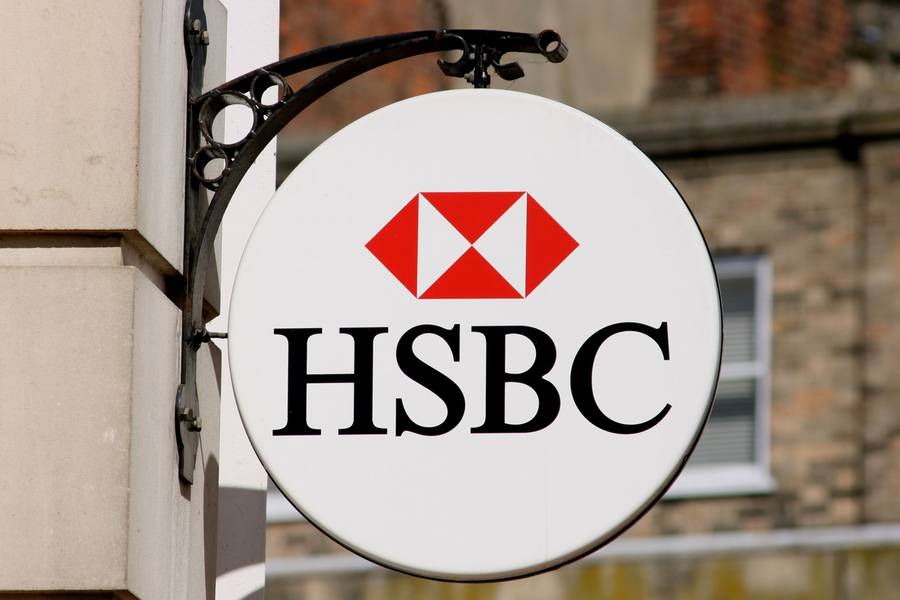PHOTO: HSBC. FILE
Overview
HSBC has revised its expectations for house price declines for the rest of this year and foresees an annual increase of 5% by the conclusion of 2024. The bank recently released a new report, which identifies several factors contributing to the anticipated surge in house prices.
New Zealand’s Housing Market Analysis
Economist Jamie Culling highlighted that New Zealand’s housing market experienced significant strain during the early stages of the pandemic compared to other countries. Between the end of 2019 and the peak in late 2021, housing prices soared by over 45%, largely due to substantial monetary and fiscal stimuli. However, subsequent interest rate tightening by the Reserve Bank led to a sharp decline in house prices.
Who are the ‘MOVERS AND SHAKERS’ of the NZ real estate industry? BUY NOW $19.99
Impact of Interest Rate Changes
The official cash rate (OCR) in New Zealand rose by 525 basis points, reaching 5.5% between October 2021 and mid-2023, as part of the effort to tackle inflation. As a result, national house prices fell by 18%, with more significant drops observed in Auckland and Wellington. Despite this, house prices are still approximately 25% higher than pre-pandemic levels.
Recovery and Housing Market Conditions
Despite interest rate increases in Australia, the housing market there has experienced a stronger-than-expected recovery due to population growth. HSBC predicts a similar trend will emerge in New Zealand, and there are already indications of stabilization in housing market conditions. Recently, housing prices have slightly increased on certain indices. Additionally, a robust rebound in migration is expected to bolster the demand for houses, leading to a tightening of the rental market, with rental price inflation rising to 3.9% year-on-year in June 2023.
Supply Side Constraints
On the supply side, the housing market in New Zealand has been relatively constrained, partly due to the limitations imposed by material and skilled labor shortages during the pandemic. The Reserve Bank has also eased its loan-to-value ratio restrictions, further influencing the housing market dynamics.
Revised Housing Price Forecasts
In light of the evolving housing market conditions, HSBC has revised its housing price forecasts for 2023 and 2024. The bank now expects housing prices to decline by 2.3% year-on-year in Q4 2023 (previously -8%), followed by a 5% year-on-year increase in Q4 2024 (previously +1%). However, this projected recovery remains relatively subdued, partly due to high debt servicing costs. HSBC had previously anticipated a peak-to-trough housing price decline of 20% to 25%, but this has been adjusted to around 18%.
Sustainable Levels and Affordability Concerns
The Reserve Bank deems current house prices to be around sustainable levels. However, it’s important to note that sustainable levels might not necessarily equate to affordability. Housing prices still appear stretched when compared to some other economies.
Note: The information presented is based on HSBC’s latest report and the economic analysis provided by economist Jamie Culling.
SPONSORED: Looking for a real estate database from $99 plus gst? | SALE
Overview
HSBC has revised its expectations for house price declines for the rest of this year and foresees an annual increase of 5% by the conclusion of 2024. The bank recently released a new report, which identifies several factors contributing to the anticipated surge in house prices.
New Zealand’s Housing Market Analysis
Economist Jamie Culling highlighted that New Zealand’s housing market experienced significant strain during the early stages of the pandemic compared to other countries. Between the end of 2019 and the peak in late 2021, housing prices soared by over 45%, largely due to substantial monetary and fiscal stimuli. However, subsequent interest rate tightening by the Reserve Bank led to a sharp decline in house prices.
Impact of Interest Rate Changes
The official cash rate (OCR) in New Zealand rose by 525 basis points, reaching 5.5% between October 2021 and mid-2023, as part of the effort to tackle inflation. As a result, national house prices fell by 18%, with more significant drops observed in Auckland and Wellington. Despite this, house prices are still approximately 25% higher than pre-pandemic levels.
Recovery and Housing Market Conditions
Despite interest rate increases in Australia, the housing market there has experienced a stronger-than-expected recovery due to population growth. HSBC predicts a similar trend will emerge in New Zealand, and there are already indications of stabilization in housing market conditions. Recently, housing prices have slightly increased on certain indices. Additionally, a robust rebound in migration is expected to bolster the demand for houses, leading to a tightening of the rental market, with rental price inflation rising to 3.9% year-on-year in June 2023.
Supply Side Constraints
On the supply side, the housing market in New Zealand has been relatively constrained, partly due to the limitations imposed by material and skilled labor shortages during the pandemic. The Reserve Bank has also eased its loan-to-value ratio restrictions, further influencing the housing market dynamics.
Revised Housing Price Forecasts
In light of the evolving housing market conditions, HSBC has revised its housing price forecasts for 2023 and 2024. The bank now expects housing prices to decline by 2.3% year-on-year in Q4 2023 (previously -8%), followed by a 5% year-on-year increase in Q4 2024 (previously +1%). However, this projected recovery remains relatively subdued, partly due to high debt servicing costs. HSBC had previously anticipated a peak-to-trough housing price decline of 20% to 25%, but this has been adjusted to around 18%.
Sustainable Levels and Affordability Concerns
The Reserve Bank deems current house prices to be around sustainable levels. However, it’s important to note that sustainable levels might not necessarily equate to affordability. Housing prices still appear stretched when compared to some other economies.
Note: The information presented is based on HSBC’s latest report and the economic analysis provided by economist Jamie Culling.
Overview
HSBC has revised its expectations for house price declines for the rest of this year and foresees an annual increase of 5% by the conclusion of 2024. The bank recently released a new report, which identifies several factors contributing to the anticipated surge in house prices.
New Zealand’s Housing Market Analysis
Economist Jamie Culling highlighted that New Zealand’s housing market experienced significant strain during the early stages of the pandemic compared to other countries. Between the end of 2019 and the peak in late 2021, housing prices soared by over 45%, largely due to substantial monetary and fiscal stimuli. However, subsequent interest rate tightening by the Reserve Bank led to a sharp decline in house prices.
Impact of Interest Rate Changes
The official cash rate (OCR) in New Zealand rose by 525 basis points, reaching 5.5% between October 2021 and mid-2023, as part of the effort to tackle inflation. As a result, national house prices fell by 18%, with more significant drops observed in Auckland and Wellington. Despite this, house prices are still approximately 25% higher than pre-pandemic levels.
Recovery and Housing Market Conditions
Despite interest rate increases in Australia, the housing market there has experienced a stronger-than-expected recovery due to population growth. HSBC predicts a similar trend will emerge in New Zealand, and there are already indications of stabilization in housing market conditions. Recently, housing prices have slightly increased on certain indices. Additionally, a robust rebound in migration is expected to bolster the demand for houses, leading to a tightening of the rental market, with rental price inflation rising to 3.9% year-on-year in June 2023.
Supply Side Constraints
On the supply side, the housing market in New Zealand has been relatively constrained, partly due to the limitations imposed by material and skilled labor shortages during the pandemic. The Reserve Bank has also eased its loan-to-value ratio restrictions, further influencing the housing market dynamics.
Revised Housing Price Forecasts
In light of the evolving housing market conditions, HSBC has revised its housing price forecasts for 2023 and 2024. The bank now expects housing prices to decline by 2.3% year-on-year in Q4 2023 (previously -8%), followed by a 5% year-on-year increase in Q4 2024 (previously +1%). However, this projected recovery remains relatively subdued, partly due to high debt servicing costs. HSBC had previously anticipated a peak-to-trough housing price decline of 20% to 25%, but this has been adjusted to around 18%.
Sustainable Levels and Affordability Concerns
The Reserve Bank deems current house prices to be around sustainable levels. However, it’s important to note that sustainable levels might not necessarily equate to affordability. Housing prices still appear stretched when compared to some other economies.
Note: The information presented is based on HSBC’s latest report and the economic analysis provided by economist Jamie Culling.















